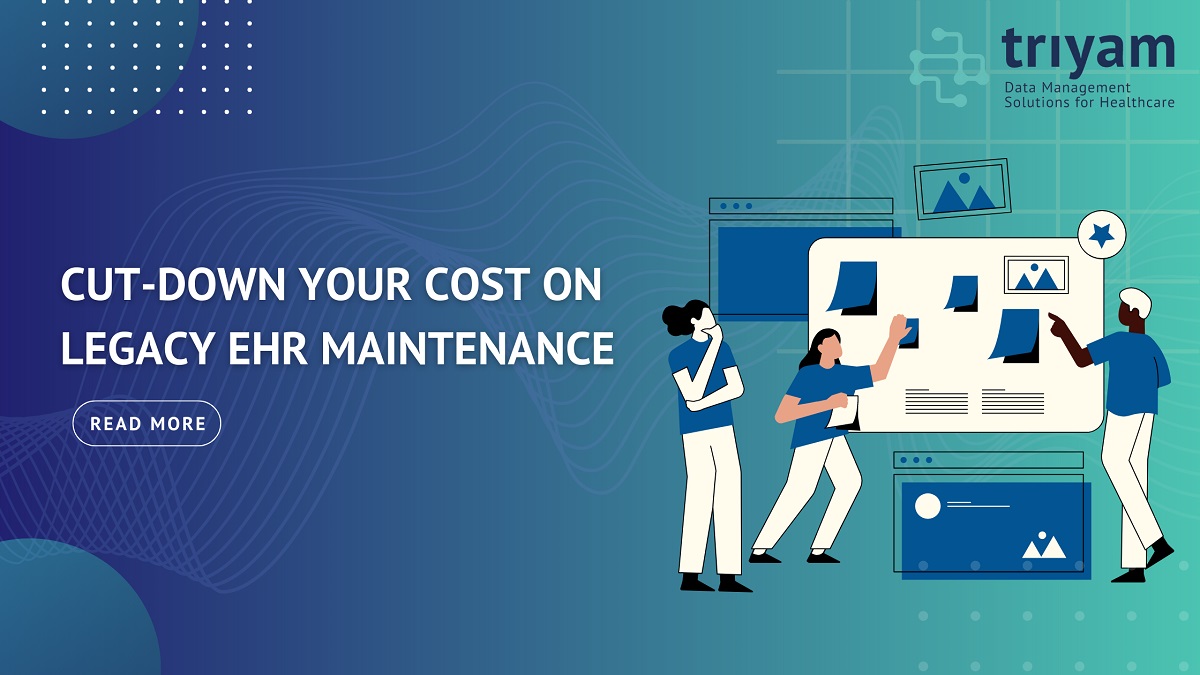What happens to the legacy EHR when you migrate your active data to an updated EHR module?
You either retain the old health records, while still maintaining the outdated technology format of your legacy systems (which might be expensive), or you decommission them completely. You also need to comply with state and federal laws when preserving legacy EHRs. For example, if you want to retain health records over 5-10 years in your system, it would be a hassle to both manage and access the data anytime you want. Let’s examine in detail the factors that double your legacy EHR maintenance costs.
1. MALWARE BREACH
Every year, the breach rate is increasing significantly with an additional impact count of over 15 million people in 2022 when compared to 2020 breaches. The longer you retain the old health records in the same legacy system, the greater the chances of data invasion. Parallelly, it is expensive to keep updating the firewall software in accordance with workflow and technological updates to avoid cyber-attacks. A privacy breach not only affect your business internally but also restrains your customer’s belief in your service, which could cause a huge financial breakdown. IBM has stated that the only feasible technique to avoid cyber invasion is EHR data conversion and archival.
2. SYSTEM SOFTWARE AND APPLICATION CONTROLS
Though the legacy EHR data may not be viewed or used regularly and even if it has read-only access, the application software requires maintenance from the concerned EHR vendor. The operating systems might also cause glitches if they are not supervised and managed on a periodic basis. This might cost you thousands of dollars per year which could double the cost of specialized data archiving. With the right data archival solution, you can easily extract, migrate, convert, and archive the legacy EHR that can be accessed conveniently by authorized users.
3. NETWORK HOST AND APPLIANCES
Maintaining a host infrastructure and servers for years could be a challenge amidst constant technological updates which is also not budget-friendly. The system must provide instant access to EHR software and in the event of failure, facilities are obligated to pay over-priced legal fines to the state. When considering data retention, legacy health records and billing records needs to be maintained in the legacy system for years, which could lead to unproductivity. Time and energy invested in obsolete technology is not financially feasible. This is where an EHR archival solution helps to migrate data and archive it in a secured cloud. This data can be accessed and reviewed at any place and time and is a more cost-effective solution.
4. HARDWARE SERVICE CONTRACT
Old hardware corrupts internal software over time. There are many chances for the data cache to be at risk of loss or malfunction. Hardware corruption could disrupt binary code programming, resulting in system breakdown. This damage will reflect in legacy EHR software resulting in data deletion. Now you will need to look out for a maintenance contract to avoid such mishaps which could cost you another thousands of dollars. However, eliminating the service contract would cause you more trouble, as well as legal issues and a penalty for losing data. To avoid all this, EHR data archival is recommended, where data is stored securely and can be accessed from a single dashboard.
5. TRAINING THE NEWBIES
While you somehow manage to retain your old health records in your legacy system, you will not be able to retain the experts who handled them. As skilled users leave, you will have to train newbies to maintain legacy records. It would be ineffective and wasteful to train the user about obsolete software if they lack knowledge of old technological usages. Training users on an ongoing archival solution that allows hassle-free access, streamlined processes, and cost-efficient management of crucial data.
Archive your legacy EHR with Triyam, your one-stop data management solution.
Triyam is a leading Healthcare Data Archiving Solution that helps you process and control your data with its proficient cloud-based archival system called Fovea. This platform helps you migrate, convert, and archive your legacy EHR without any adversity. Triyam is the winner of the Best in KLAS awards in Data Archiving for 2021 and 2022. We have the highest cyber security solutions for data management and resilience.
Schedule a free consultation today!
Email: info@triyam.com
Call: 855-663-2684

